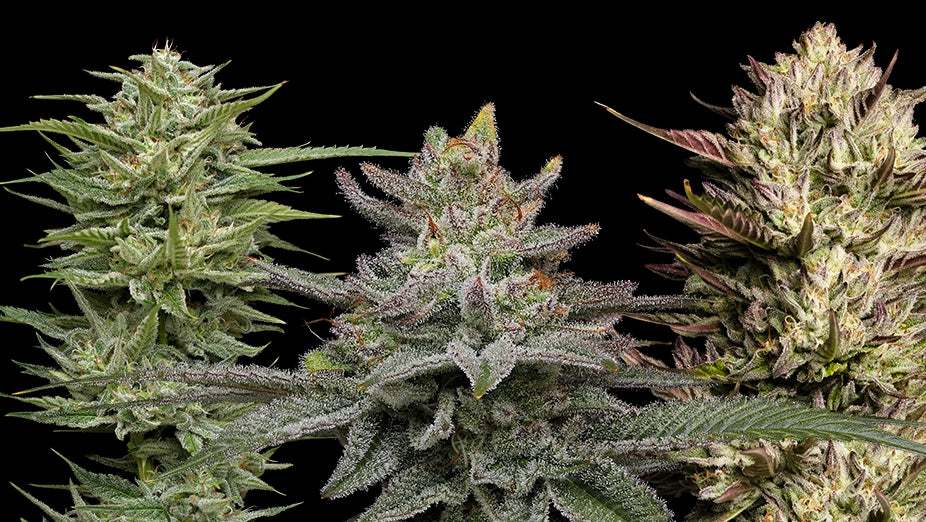
10 High-THC Strains Guaranteed To Liven Up Your Grow
Share
Cannabinoids, are the chemical compounds found in the cannabis plant, have gained attention due to their potential therapeutic and recreational benefits. With over a hundred identified cannabinoids, each has distinct effects, the world of cannabis is rich and complex. These compounds are naturally created by cannabis plants and interact within the brains of mammals, influencing various processes. In this article, we dive into the journey of high THC (tetrahydrocannabinol) seeds, exploring the fascinating world of cannabinoids, how they change in your brain, and the entourage effect.
Understanding Cannabinoids and the Endocannabinoid System
Cannabinoids are natural compounds found in cannabis plants, with THC and CBD (cannabidiol) being the most recognized. These compounds interact with the brains network of endocannabinoid receptors and enzymes in mammals, regulating functions like mood, pain perception, and immune responses. This intricate system plays a crucial role in maintaining homeostasis within the body.
Cannabinoids, though most famously associated with cannabis, are not exclusive to the plant kingdom. These compounds are found in various organisms, reflecting their role in biological processes beyond cannabis. Some non-cannabis plants, such as Echinacea and Black Truffles, contain cannabinoids or cannabinoid-like compounds that interact with the endocannabinoid system in humans and animals.
Certain foods like chocolate and black pepper harbor compounds that can interact with the endocannabinoid system.
Beyond plants, cannabinoids also emerge in unexpected places. Human breast milk, for instance, contains endocannabinoids like anandamide, thought to influence infant development and bonding. These discoveries suggest that cannabinoids play a broader role in nature’s intricacies, influencing physiology and interactions far beyond the familiar realm of cannabis.
CBG and Cannabinoid Conversion
Cannabigerol (CBG) is known as the “mother cannabinoid” due to its role in the synthesis of other cannabinoids. Through enzymatic processes, CBG is converted into compounds like THC, CBD, CBC (cannabichromene), and THC-V, a unique cannabinoid found in strains like Durban Poison. This conversion occurs during the plant’s growth and development, and it’s a critical step in determining the final cannabinoid profile of a strain.
The Quest for High THC
Throughout the history of cannabis cultivation, THC levels have varied significantly due to a combination of natural genetics, selective breeding, and evolving cultivation techniques. In ancient times, cannabis plants likely contained lower levels of THC compared to modern high-THC strains, as early cultivation focused more on fiber and seed production rather than psychoactive effects. However, as human understanding of the plant’s properties grew, intentional selection for higher THC content began.
The last few decades have witnessed a remarkable increase in THC levels, driven by scientific advancements, meticulous breeding programs, and the desire to create strains with specific effects. Today’s cannabis landscape showcases a wide spectrum of THC levels, ranging from mild to extraordinarily potent, highlighting the ongoing influence of human intervention on the plant’s chemical composition.
High-THC cannabis strains have captured the attention of both recreational and medicinal users. THC is responsible for the plant’s psychoactive effects and is one of the most sought-after cannabinoids. Breeders and growers have been on a quest to develop strains with higher THC content, using selective breeding and the scientific method.
THC-A vs. THC and the Creation of CBN
THC exists in two main forms: THC-A (tetrahydrocannabinolic acid) and THC. THC-A is the non-psychoactive precursor of THC. When exposed to heat, such as through smoking or vaping, THC-A undergoes decarboxylation, transforming into the psychoactive THC. Over time, THC can also oxidize and convert into CBN (cannabinol), a cannabinoid known for its mild sedative effects.
The Entourage Effect and Terpenes
The entourage effect refers to the complementary interaction between cannabinoids and other compounds present in the cannabis plant, such as terpenes. Terpenes are aromatic compounds responsible for the distinctive smells of different strains. They not only contribute to the plant’s aroma but also play a role in modifying the effects of cannabinoids. Higher levels of terpenes can enhance the overall cannabis experience, making the high more potent and enjoyable.
Certain terpenes can have specific effects on your mood, like aromatherapy. Strains with high Linalool, like our Blueberry Muffin may have a calming effect helping reduce anxiety and stress. Strains with high Limonene like our Sour Diesel have an energizing effect.
Different terpenes have different effects. Some are great for chronic pain while others may have uplifting effects. Consider both the terpene profile and THC levels when looking to try new strains.
OUR TOP 10 High THC PHOTOPERIOD STRAINS OF 2023
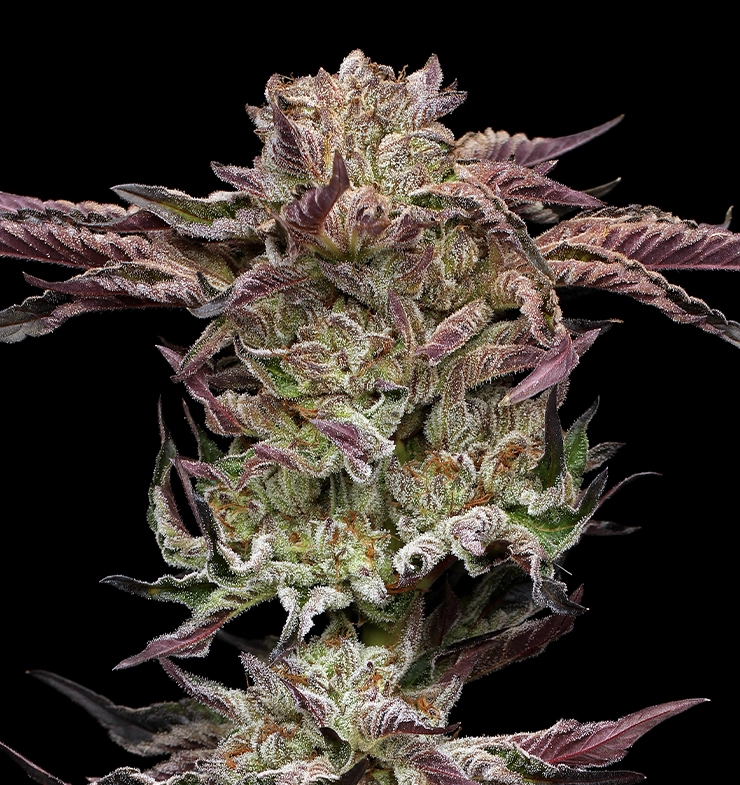
1. JELLY DONUTZ (30-35% THC)
Welcome to the world of dessert strains and delicious flavors. Jelly Donutz is a tasty little morsel with high potency that is sure to delight the palate of smokers of all consumption habits. This strong weed strain will also satisfy growers looking for a fast-flowering plant that provides a huge yield. It’s currently the highest THC strain we offer.
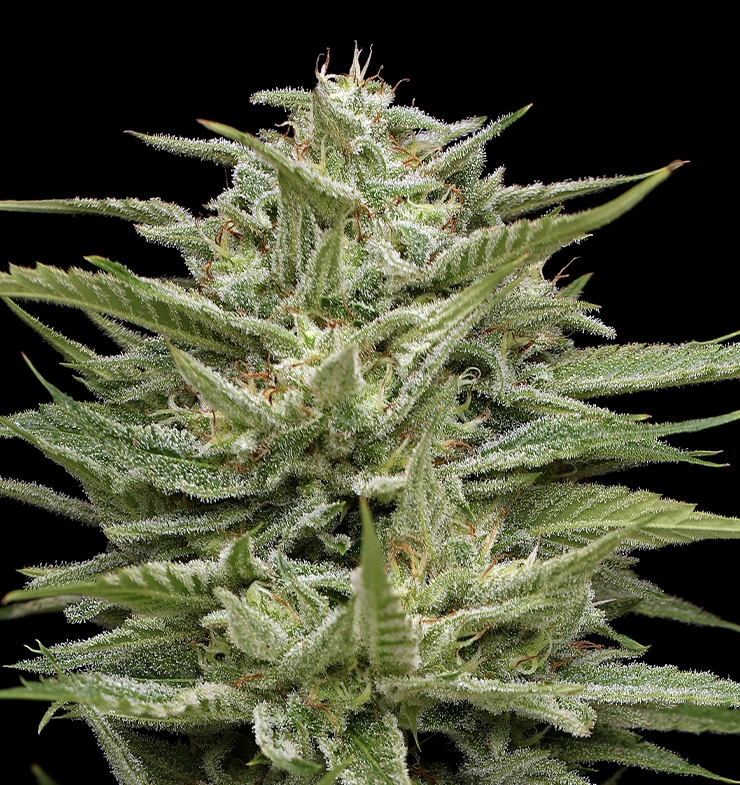
2. HELLA JELLY (29-35% THC)
Hella Jelly is a sativa-dominant hybrid cannabis strain (30% indica, 70% sativa). Its average THC level falls between 26% and 30%. The potent strain was bred by crossing Hella Jelly BX3, Notorious T.H.C., and Very Cherry. The result is a fruity flavor profile with potent effects that will satisfy the desires of cannabis consumers of all tolerance levels.
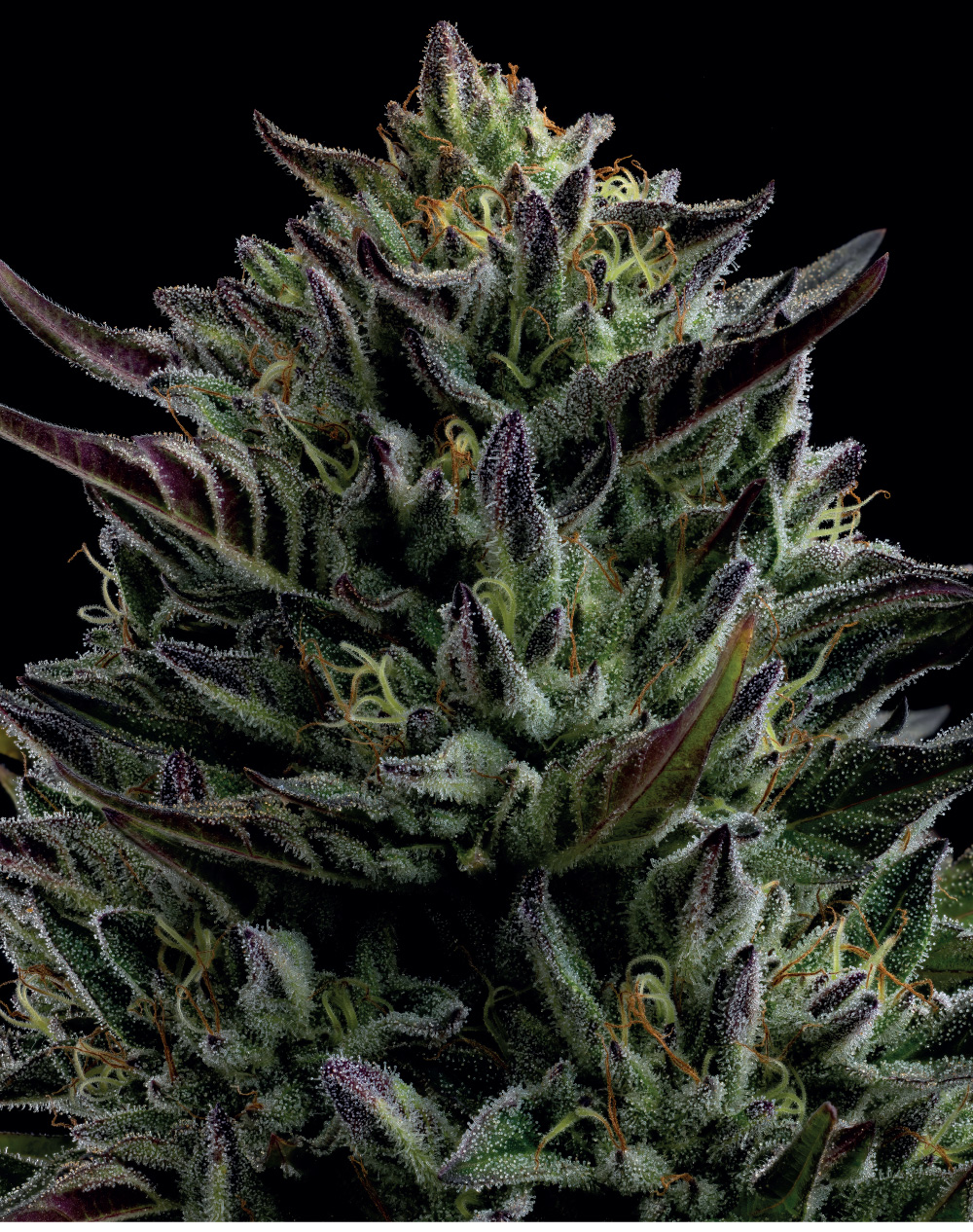
3. CALIFORNIA OCTANE (31-34% THC)
If you love you some gassy cannabis, then you might find Cali Octane to be one of the best weed strains with high THC content. It’s relatively easy to grow, produces highly potent buds, and has a beautiful aesthetic that will scream bag appeal to anyone growing or consuming it.
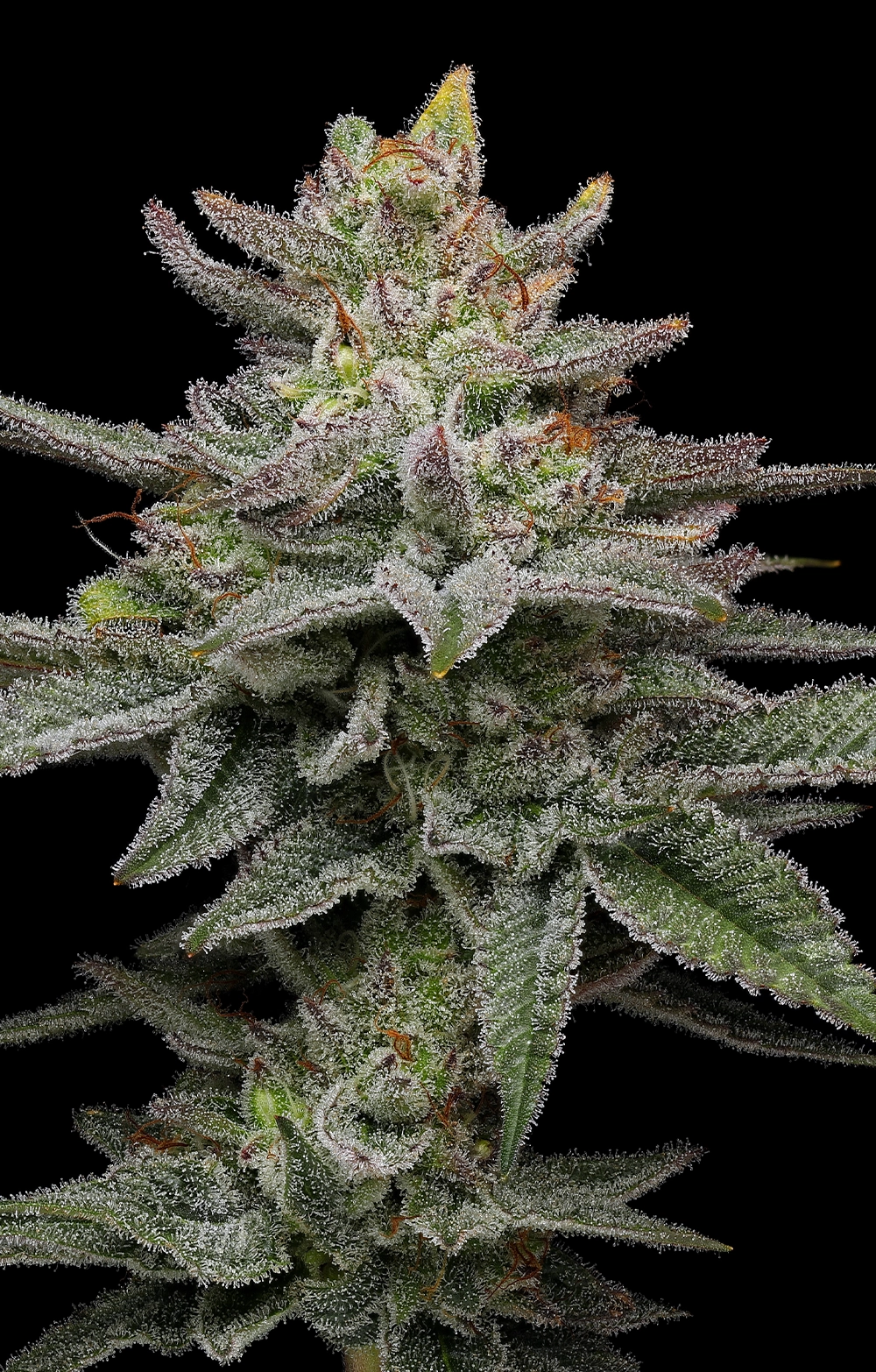
4. BLUEBERRY CUPCAKE (28-34% THC)
This cross of our famous Blueberry Muffin with the renowned Wedding Cake strain is sure to take you higher. The flower smells wonderful with all the subtleties of cake batter and blueberries with a hint of rocket fuel pushing into THC percentages above 30. This strain is known for having an euphoric effect from the high levels of Linalool.
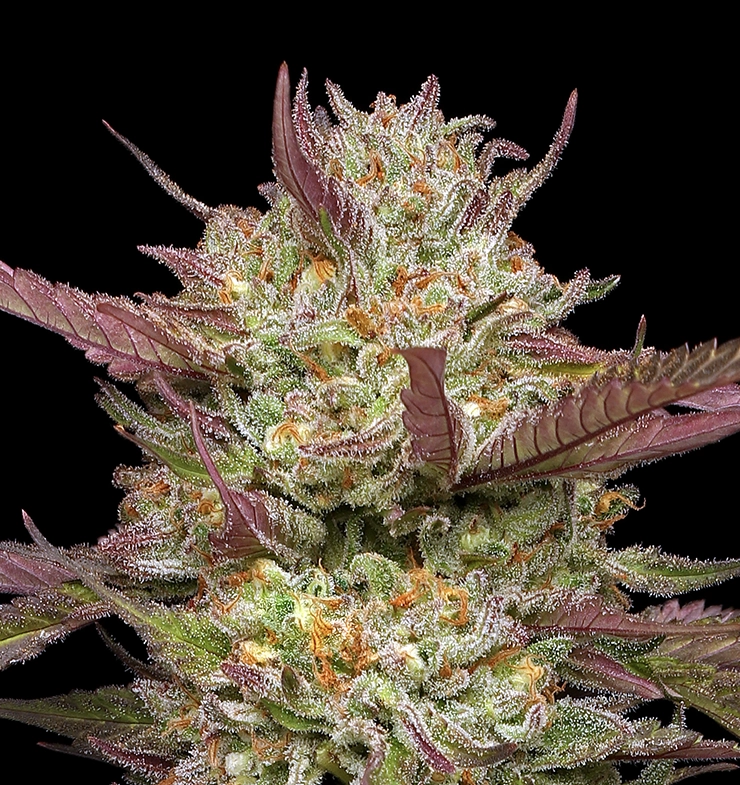
5. BLUEBERRY PANCAKES (31% THC)
This plant stacks heavy, vibrant, bright green, trichome covered nugs with a sickeningly sweet syrup nose making this purple flaked mama an epic addition to our legendary Blueberry line.
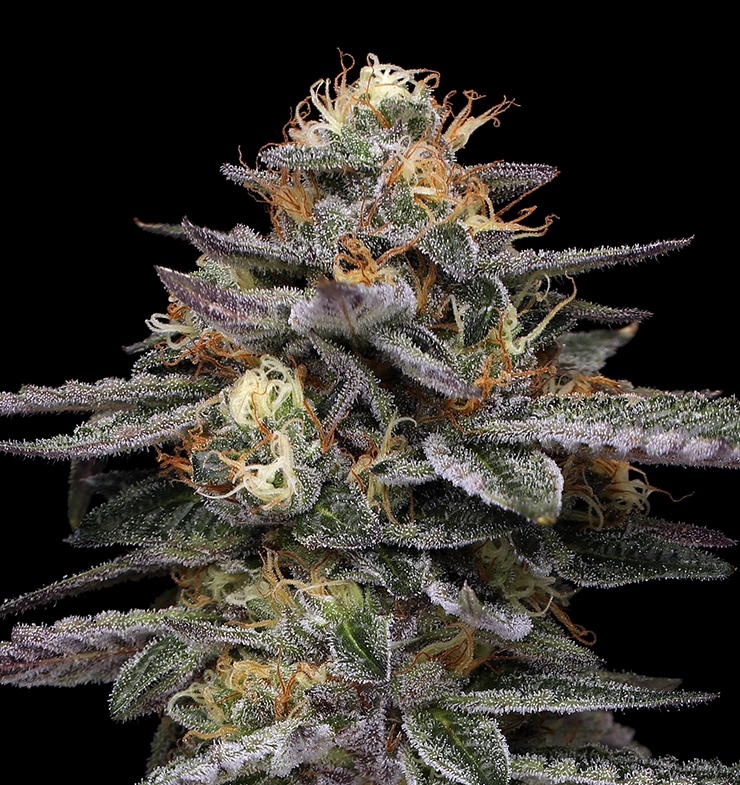
6. VANILLA FROSTING (28-32% THC)
Improving the Gelato lines of the past few years, this strain steers away from squat flowers and heads to the skies. Prioritizing hybrid vigor and THC production, these seeds will pack an acre without the finicky growth habits of OG.
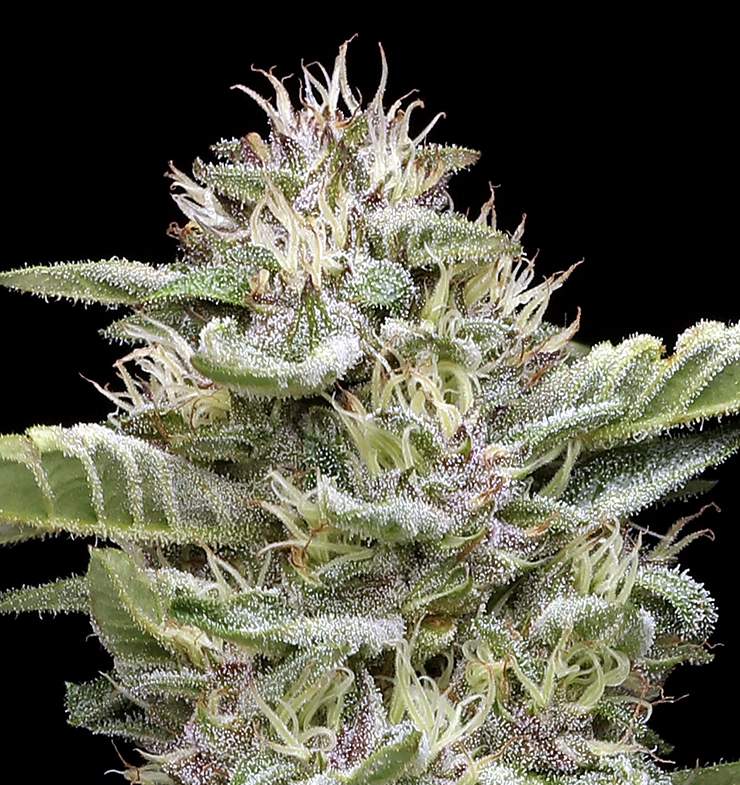
7. GARLIC BUDDER (28-32% THC)
This line stood out in our 2019 Phenotype mega-hunt: the spicy garlicky terpenes are prevalent, along with enticing buttery and nutty undertones. This Indica-dominant hybrid strain packs power, you might just end up glued to your chair giggling like a goofball like we did. We don’t recommend smoking this before work.
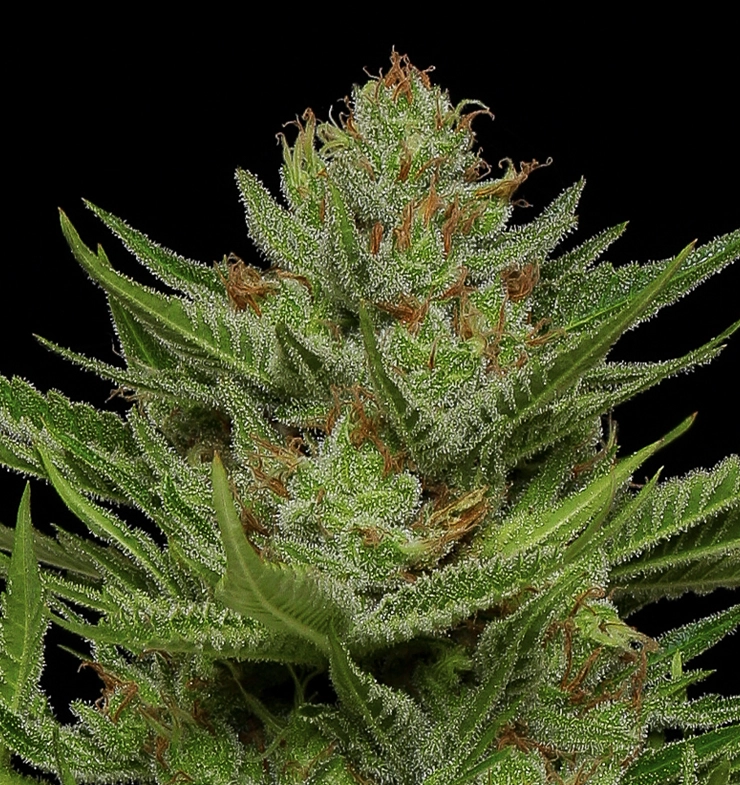
8. STOOPID FRUITS (28-31% THC)
Although Slightly Stoopid Fruits is 80% sativa it finishes early giving it a wide zone of cultivability outdoors. Plants grow quite large with huge buds of joy, lime green in color and covered in glistening resin-producing trichomes.
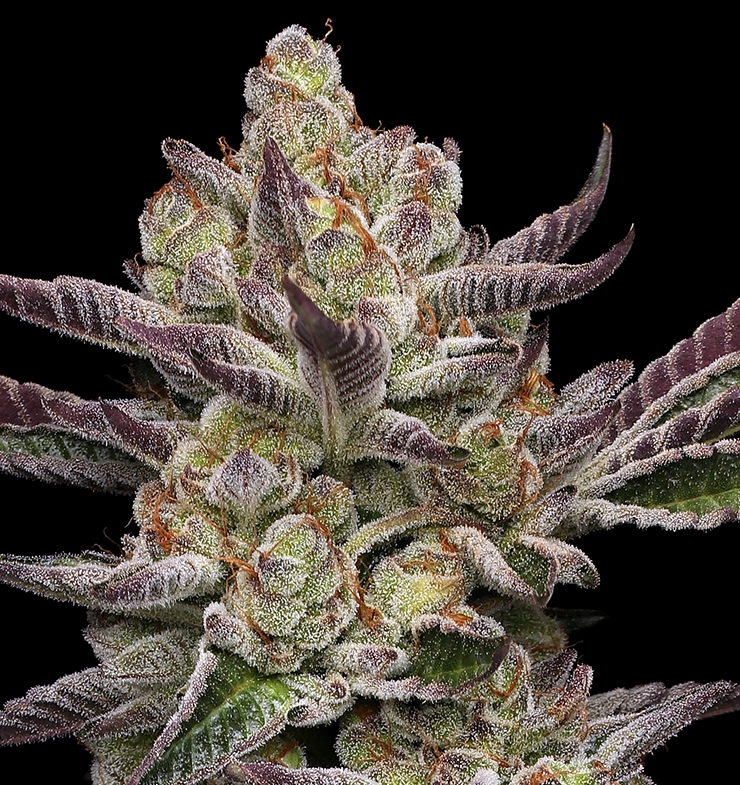
9. PODDY MOUTH (24-30% THC)
This line guarantees you’ll have bag appeal and moves off the shelf quickly, making your outdoor look like indoor and your indoor like it’s from another planet. Selection of this line was based primarily on appearance, but it does have gassy terps with a hint of sweetness. The super stoney high comes on quickly for both head and body, with euphoric and relaxing effects.
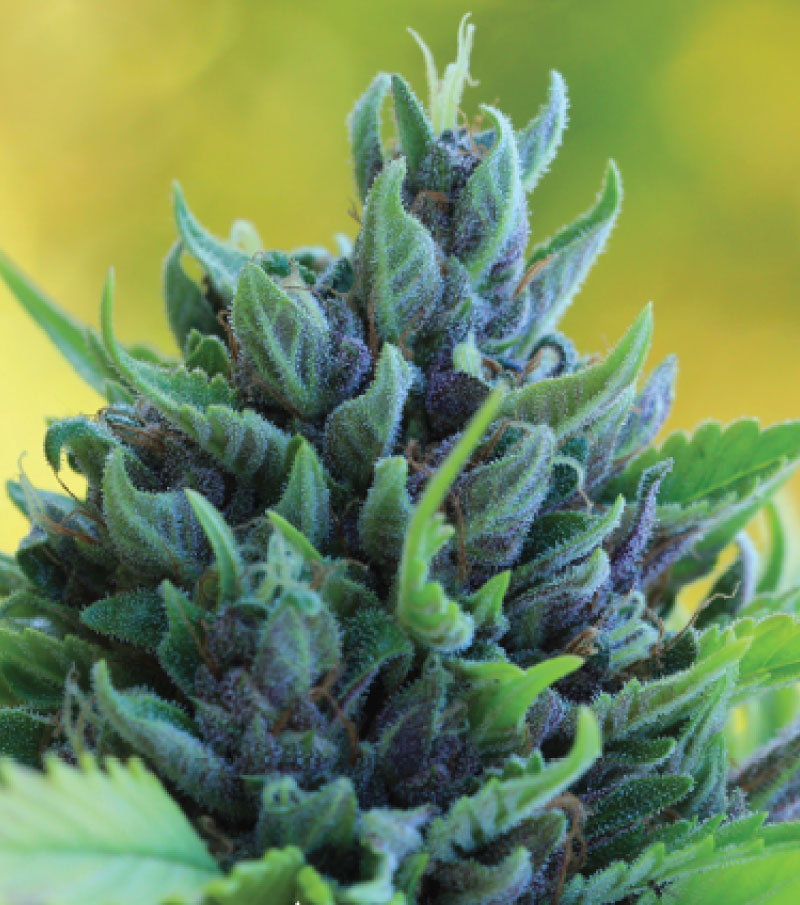
10. HUMBOLDT DREAM (27-30%)
Humboldt Dream nugs appear super sticky with lumpy dark olive green nugs that are covered in vibrant orange hairs and rich blue undertones. They are picked from plants that reach well over 15 ft in weight and yield over 10 lbs per plant when grown properly.
Conclusion
The world of high THC seeds and cannabinoids is a captivating realm, driven by science, innovation, and a deep understanding of plant biology. As our knowledge about cannabinoids and their interactions continues to expand, so does the potential for developing strains that cater to various preferences and needs. From the intricate cannabinoid conversion processes to the entourage effect’s role in enhancing our cannabis experience, the journey into the world of cannabis continues to be a fascinating exploration.

